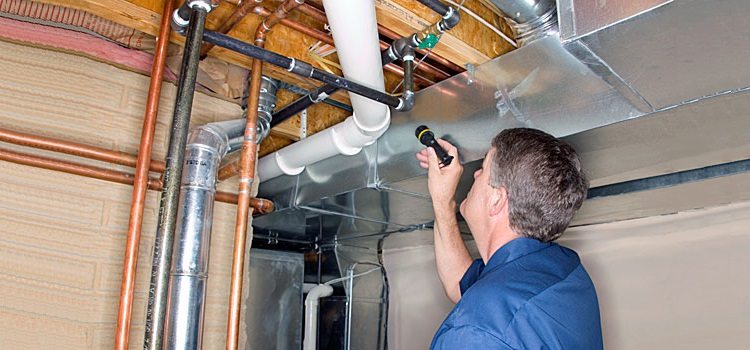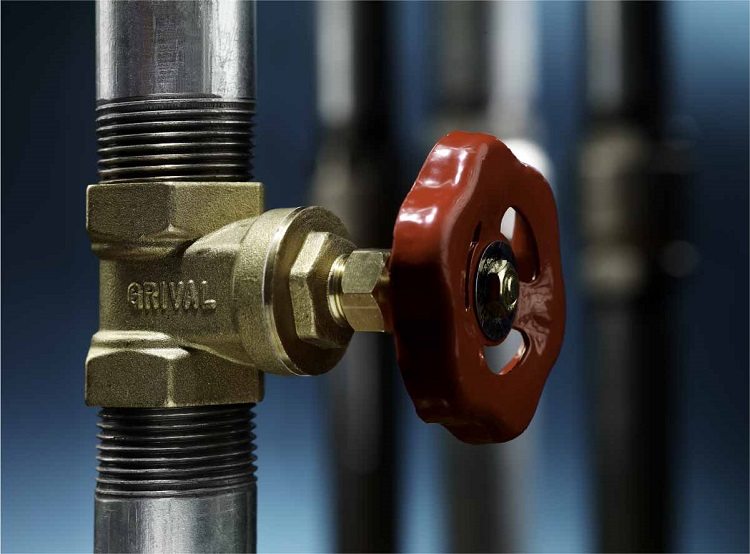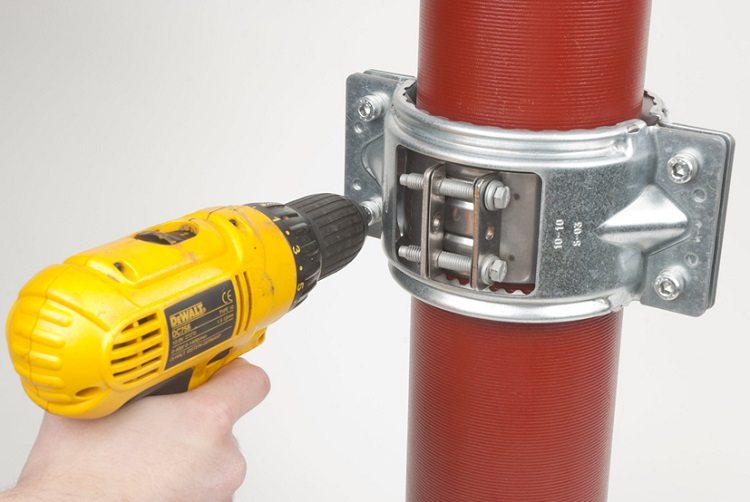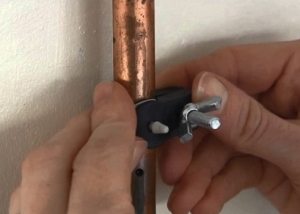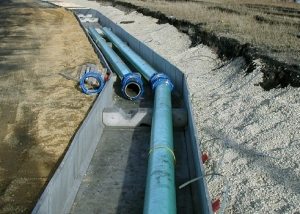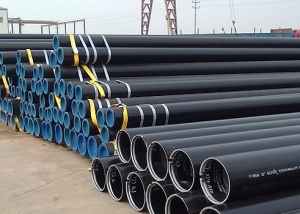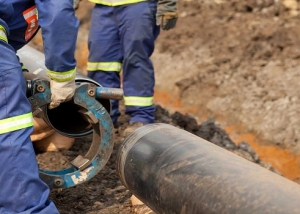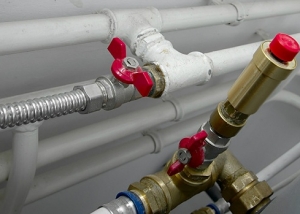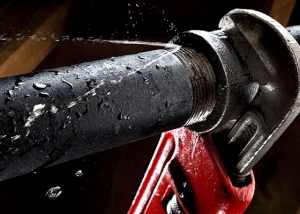The hum that occurs in water pipes with frequent intervals is not a rare phenomenon, but it is very unpleasant. The question "Why are the water pipes buzzing?" often worries residents of apartment buildings, however, to give a universal answer to it is almost impossible. To get rid of the hum in the pipes is quite possible, but first you need to understand the nature of its occurrence.
Content
Why do the water pipes buzz even with the tap closed?
Such indicators as tonality, frequency of occurrence, nature and presence of vibrations give an idea of what caused the noise in the plumbing system. Three main groups of noise emitted by the water supply can be distinguished: constant hum, buzzing when opening the tap and tapping in the system.
The monotonous hum in the plumbing system is the most annoying of possible noises in the house. From time to time, this noise may whistle, amplify, or fade. Most often, this phenomenon can be found in high-rise buildings, built many decades ago. The most common causes of such a hum can be several.
Sound can come from the basement pipeline and spread to all other floors. As a rule, a steel pipeline continues to operate in old apartment buildings, the working potential of which has long been exhausted. Pipes collapse under the influence of rust, fistulas and leaks, blockages appear in them. Noise in the water system installed in the basement can also occur due to a poorly closed plug or open vent.
If the buzz of the pipes in the tap was caused by the depressurization of the system and the leak, then after its repair the malfunction should disappear. To resolve this problem, you need to seek help from the housing and communal services. Doing independent attempts to find a source of noise in the basement is not worth it, it can threaten instability in the operation of the entire water supply system in the house.
Helpful advice! Buzzing pipes in a private system or in new homes is far from uncommon. Sounds from the water supply are explained by poor-quality repairs, in which the pipes are too close to each other. A hum comes in contact with vibrating tubes. It is necessary to wrap each of the "problem" pipes with foam insulation.
A poor or too old faucet is one of the probable reasons why the water pipes in the apartment can buzz. Also, sounds in the pipeline appear when the gasket has been worn, which serves as a seal for the connection of the mixer and tee for cold and hot water. From the pipe, where the water pressure is higher, the water will flow into the adjacent one due to a malfunction of the mixer, thus becoming a source of constant hum.
Specific sounds in water pipes appear during poor patency of certain sections of the system. A rumble is formed by the principle of a whistle: the stronger the pressure of water, the louder the sound. The total water intake for apartments emanating from one riser may not allow water to pass through due to an insufficiently open valve in the basement or slagging of the system.Check whether clogging caused noise, as follows: you need to disconnect the pipe from the mixer and evaluate the condition of its cavity. If dirt deposits are visible on the inner walls of the pipe with the naked eye, then most likely the plumbing system needs to be cleaned as soon as possible. Do cleaning can be mechanically, as well as using hydraulic or pneumatic flushing.

If the noise in the pipes is accompanied by a decrease in water pressure, then the system needs urgent cleaning
Why do the water pipes buzz when the tap opens?
The loud hum in the pipe that appears when the tap is opened is in most cases accompanied by vibration. The cause of this noise effect may be a worn-out axle box in the mixer. When the faucet opens, in the copious flow of water, the axlebox begins to vibrate. With increasing water pressure, the axle box partially blocks the pressure, which causes peculiar turbulence. Checking the health of the faucet boxes is the first thing to do if the water pipes are buzzing. It is easy to determine which crane is the problem: you need to open the cold and hot taps one at a time.
Helpful advice! Crane-boxes with a rubber gasket often bring a lot of problems, in addition to unpleasant noise, so it is better to abandon them. Preference should be given to ceramic faucet-boxes of imported production, fully compatible with domestic mixers. Such crane boxes are completely silent, do not leak over time and do not need to be replaced. If the noise persists with a ceramic crane box, then it was installed incorrectly.
If the apartment has new plumbing installed, but the vibration and buzzing when opening the taps do not stop, you should pay attention to the density of the fasteners of the structural elements. Water swirls can be caused by insufficient fixation of pipes and mixers. The problem should disappear after sealing the parts. Accordingly, if there is a noise in the water supply system that appears abruptly and quickly disappears, perhaps the problem is a malfunction in neighboring apartments.
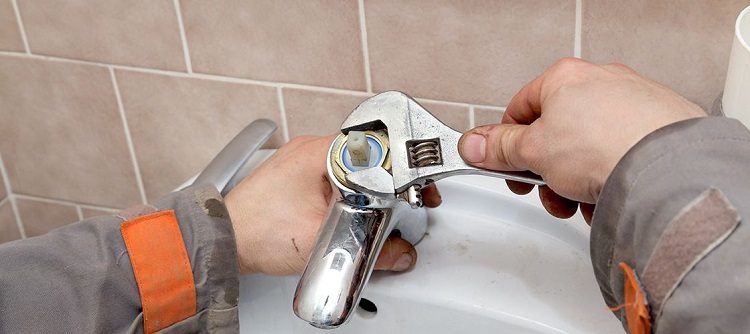
The noise in the pipes when opening the tap can indicate problems with the crane box or mixer cartridge
Overpressure in the pressure system is also one of the reasons why water pipes begin to buzz when the water is turned on. Such a problem can be observed at certain times of the day when the pressure in the water supply system is maximized. Too high a load on the pipeline is undesirable not only due to noise. Strong and sharply arising pressure sometimes leads to disruption of the entire water supply system, depressurization of the joints of the water supply sections. You can try to relieve excess pressure by placing an air chamber in the space between the pipe and the tap. It will be either an additional pipe segment or a special pipe silencer.
Tapping in pipes
Usually the knock in the pipes in the apartment has a clear localization. This problem occurs in both plumbing and heating systems. It arises for a number of reasons.
Thermal expansion of the pipeline. This can explain the specific tapping that is familiar to the owners of the steel pipeline. WITH plastic pipes this problem does not happen. When the hot water tap is turned off for a certain time, the metal manages to cool. But at a time when one of the residents of the house opens the hot water tap again, the pipes heat up again and, consequently, expand. Such an increase in the system is not noticeable to the human eye, but it is sufficient for the pipe to come into contact with other structural elements and at the same time emit a knock.
Incorrect valve installation. Due to an error in the installation of the screw valve, the valve often breaks off. The valve begins to beat against the inner walls of the pipe, and eventually blocks the flow of water.
Knock from impact in places of fastening of a pipe. Any factor causing vibration of the pipe can activate the noise. With an increase in pressure, with thermal expansion, with mechanical action, the pipe breaks against a wall mount. In this case, it is worthwhile to additionally fix the structure, for example, with another bracket. Tap from the riser can be corrected by filling the space in the ceiling with foam.
The last, also quite common problem, accompanied by noise in the water supply, is the air in the pipes. Overlapping water in individual sections of the pipeline, flow and much more contributes to the formation of air jams in the pipeline. An air exhaust system is required. It also performs the function of protecting against corrosion of pipes and the appearance of errors in the pump.
